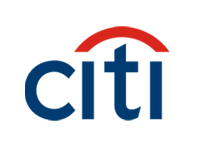Search
StratHR Asks: Are Flexi Hours at the Workplace Possible?
September 17, 2013

To start things off, second-year PGDBM student Nikhil Naik explores an issue that is gaining significance in India and will require more HR managers to consider seriously if they wish to retain employees in the long run.
Making Flexi Hours at the Workplace Possible
Today, employee benefits have become a key motivator in the performance of employees . Based on this understanding, a survey was conducted by Aon Hewitt called “Employee Preference Study 2013” which revealed that the top three benefits for employees were fixed pay, higher incentives and flexible working hours.
Companies like P&G, Mahindra & Mahindra, Citi, PwC, HSBC and IBM have already implemented the flexible working hours policy. The study involved not only women and GEN-Y, but employees across generations.
Examples:

At Citi India, a programme was initiated in 2012 called “Citi Work Strategies”. The Citi Work Strategies (CWS) Program supports priorities such as improving the work/life balance of its employees, enabling an agile workforce, supporting business continuity needs and how, when, and where work gets done. The program is able to offer a number of CWS-sponsored work schedules to help employees and managers find the right workplace solution that meets personal and business needs.
PwC launched a flexible work policy in January this year, and employee Muskkan

Kukreja applied for it in June to take care of her year-old daughter. The policy allows her to work from 9:30am to 4:00pm, five days a week. The work arrangement is reviewed after three months, and if found satisfactory, employees have the option of applying again. Kukreja’s application for an extension of this arrangement to November has been approved. “A flexible work arrangement is a boon for working mothers who have worked hard on building their careers,” she said. Organisations seem to not want to compromise on performance and employees are rewarded based on their performance.

However, at times, it becomes difficult for an employer to manage such flexi hours and other arrangements are sought. Rupika Raman, head of development, Marketing, for Garnier at L’Oreal India had sought a flexible working arrangement to look after her baby after the absence of a nanny and her mother’s ailment forced her to consider a break from work. So after brainstorming sessions with the HR head and managers, the company decided to appoint Raman as the marketing manager for special, long-term L’Oreal projects that involved liaising with international teams and labs and working on consumer insights. The role allowed her work three day a week from home.
PwC has also come up with a programme called “Flexible Fridays”, in which employees can take up to three Fridays off in a financial year, provided they finish their full normal workweek hours—40 and above—in any given week, in four days. The firm has also introduced a new sabbatical option that enables employees to take up to a year’s leave at any point of time, and also a ‘Go-Do-It’ programme that gives time off during office hours to complete personal responsibilities.



